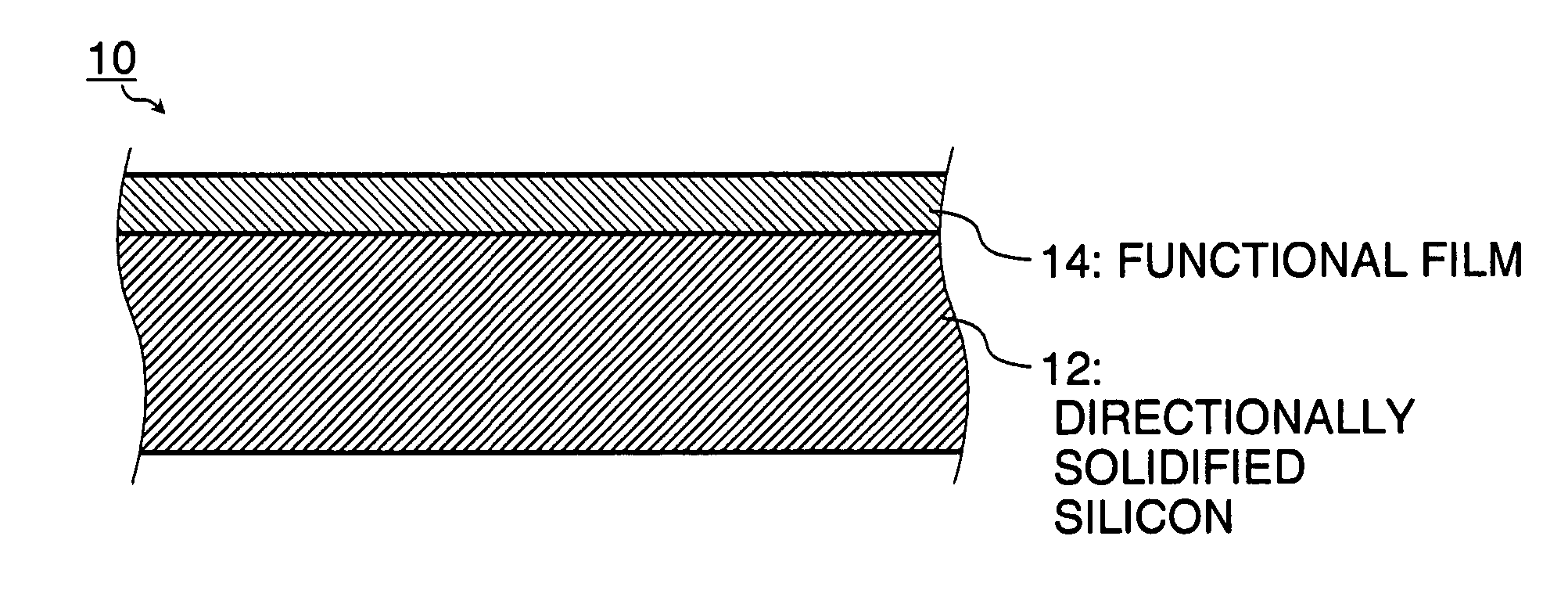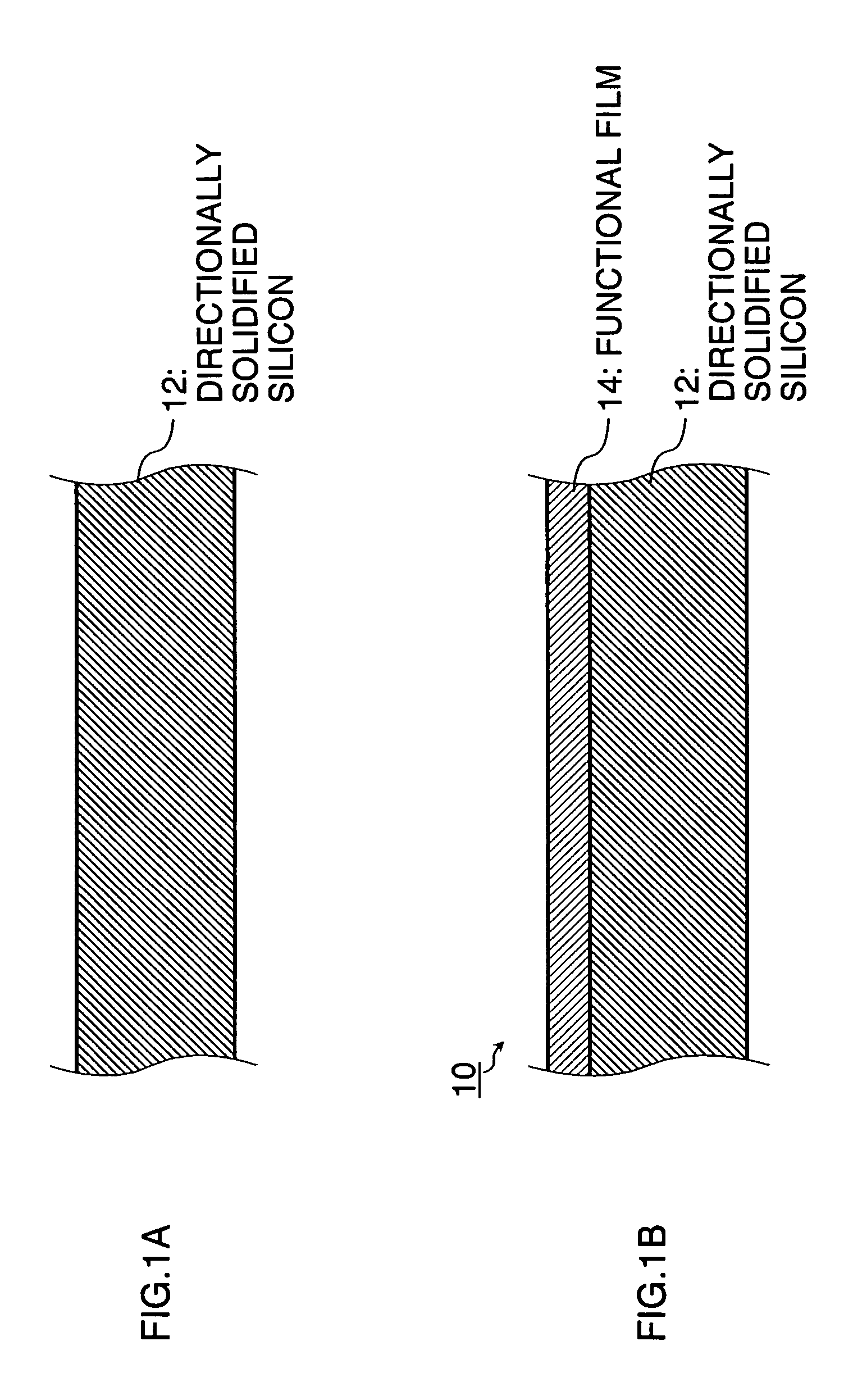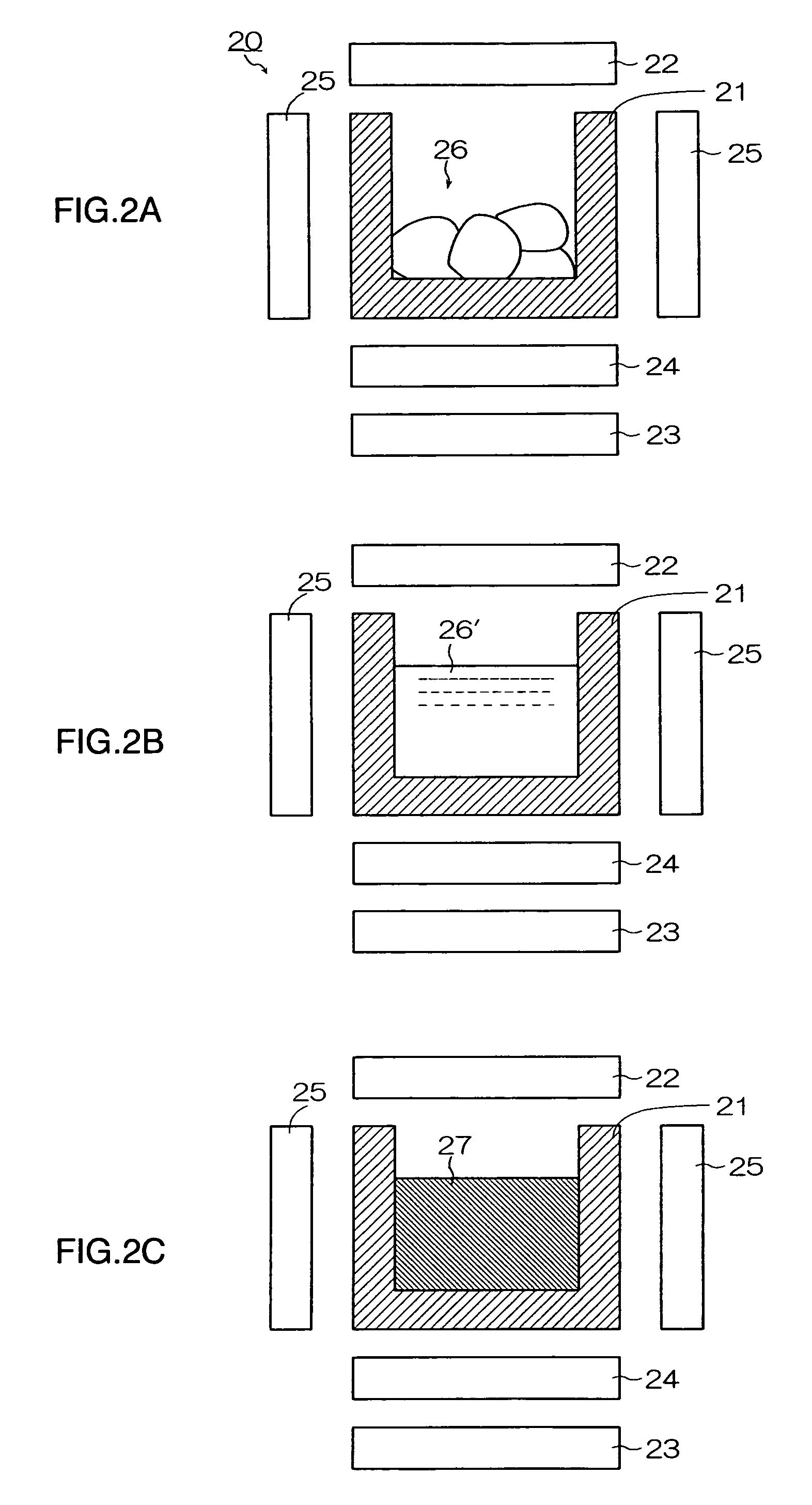Functional structural element, method of manufacturing functional structural element, and substrate for manufacturing functional structural body
- Summary
- Abstract
- Description
- Claims
- Application Information
AI Technical Summary
Benefits of technology
Problems solved by technology
Method used
Image
Examples
first embodiment
[0030]FIGS. 1A and 1B are diagrams showing a method of manufacturing a functional structural element according to the present invention. FIGS. 1A and 1B are cross-sectional diagrams showing respective steps of a process for manufacturing a functional structural element.
[0031] Firstly, as shown in FIG. 1A, a substrate 12 made of directionally solidified silicon is prepared. For example, it is possible to prepare the substrate 12 using directionally solidified silicon (columnar crystal silicon) manufactured by JEMCO INC.
[0032] An embodiment of a process for manufacturing the substrate 12 made of directionally solidified silicon is described with reference to FIGS. 2A to 2C. FIGS. 2A to 2C are diagrams showing a method of manufacturing the substrate 12 made of directionally solidified silicon.
[0033] A silicon ingot manufacturing apparatus 20 shown in FIGS. 2A to 2C comprises: a crucible 21, which has a large horizontal cross-sectional area; a ceiling heater 22, which is disposed abov...
second embodiment
[0051] Next, a method of manufacturing a functional structural element according to the present invention is described with reference to FIGS. 3A to 3C. FIGS. 3A to 3C are cross-sectional diagrams showing respective steps of a process for manufacturing a functional structural element.
[0052] Firstly, as shown in FIG. 3A, a substrate 32 made of directionally solidified silicon is prepared. The manufacturing steps of the directionally solidified silicon substrate 32 are similar to those of the first embodiment described above, and hence description thereof is omitted here.
[0053] Next, as shown in FIG. 3B, a buffer layer 34 is formed on the directionally solidified silicon substrate 32. The buffer layer 34 is formed from a material having a lattice constant that is suited to epitaxial growth of the functional material on the substrate 32. Here, the material of the buffer layer 34 is, for example, yttria-stabilized zirconia (YSZ) (ZrO2+Y2O), ceria (CeO2), magnesium aluminate (MgAl2O4) o...
PUM
 Login to View More
Login to View More Abstract
Description
Claims
Application Information
 Login to View More
Login to View More - R&D
- Intellectual Property
- Life Sciences
- Materials
- Tech Scout
- Unparalleled Data Quality
- Higher Quality Content
- 60% Fewer Hallucinations
Browse by: Latest US Patents, China's latest patents, Technical Efficacy Thesaurus, Application Domain, Technology Topic, Popular Technical Reports.
© 2025 PatSnap. All rights reserved.Legal|Privacy policy|Modern Slavery Act Transparency Statement|Sitemap|About US| Contact US: help@patsnap.com



